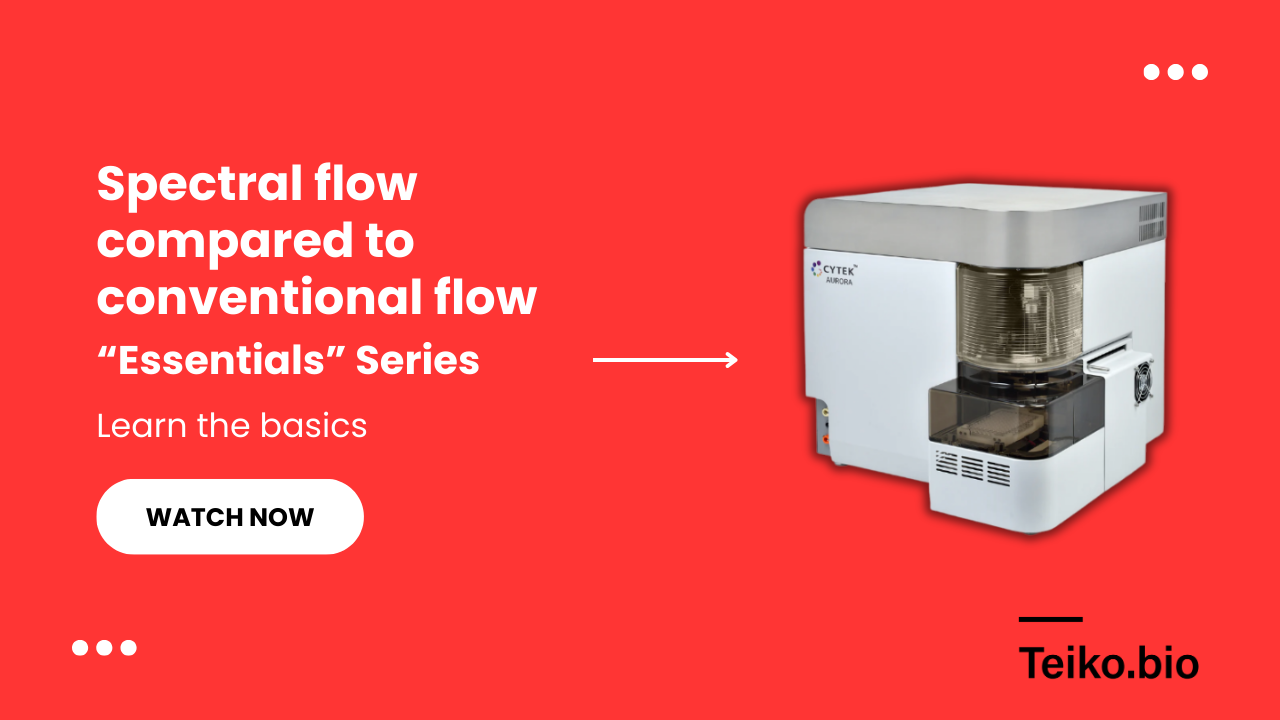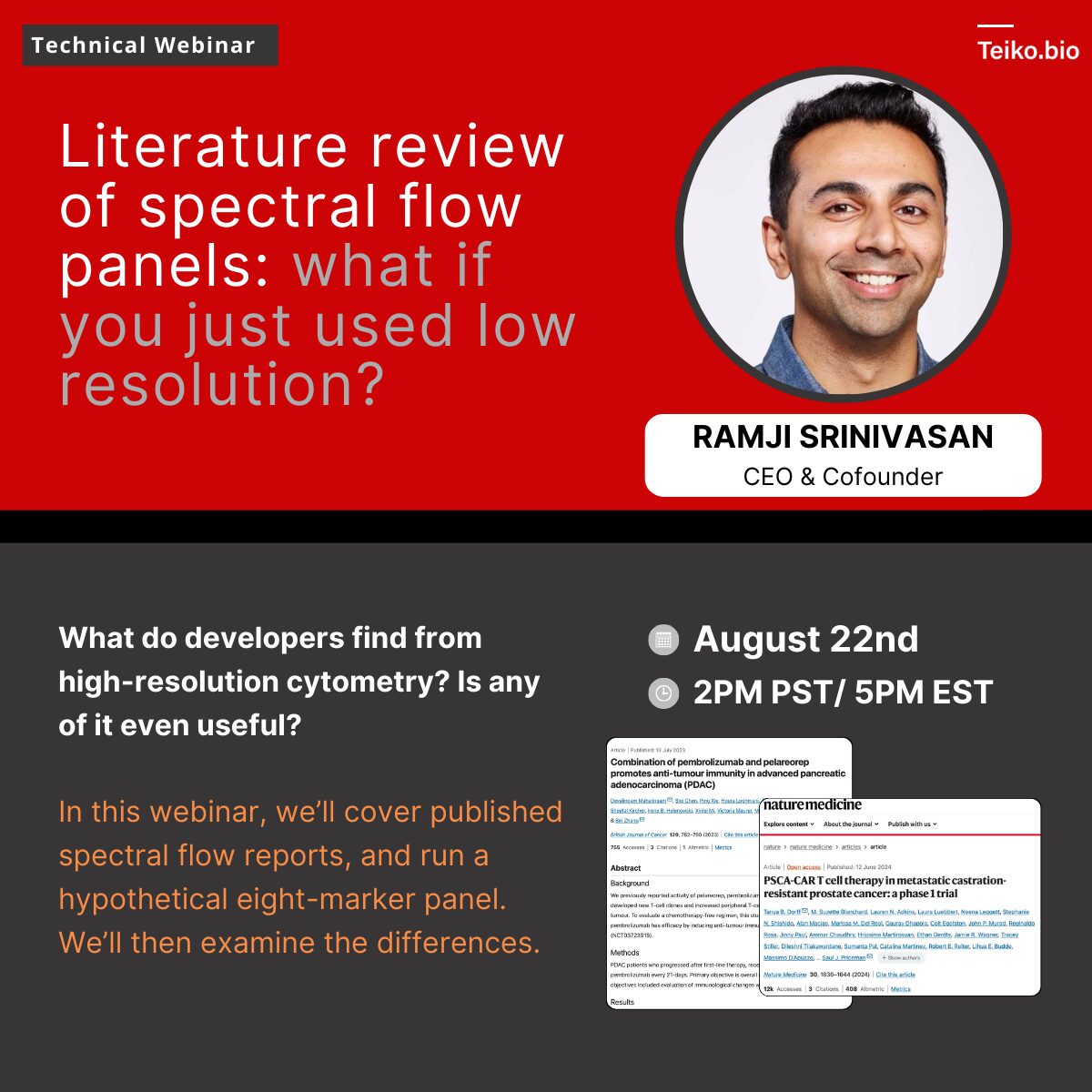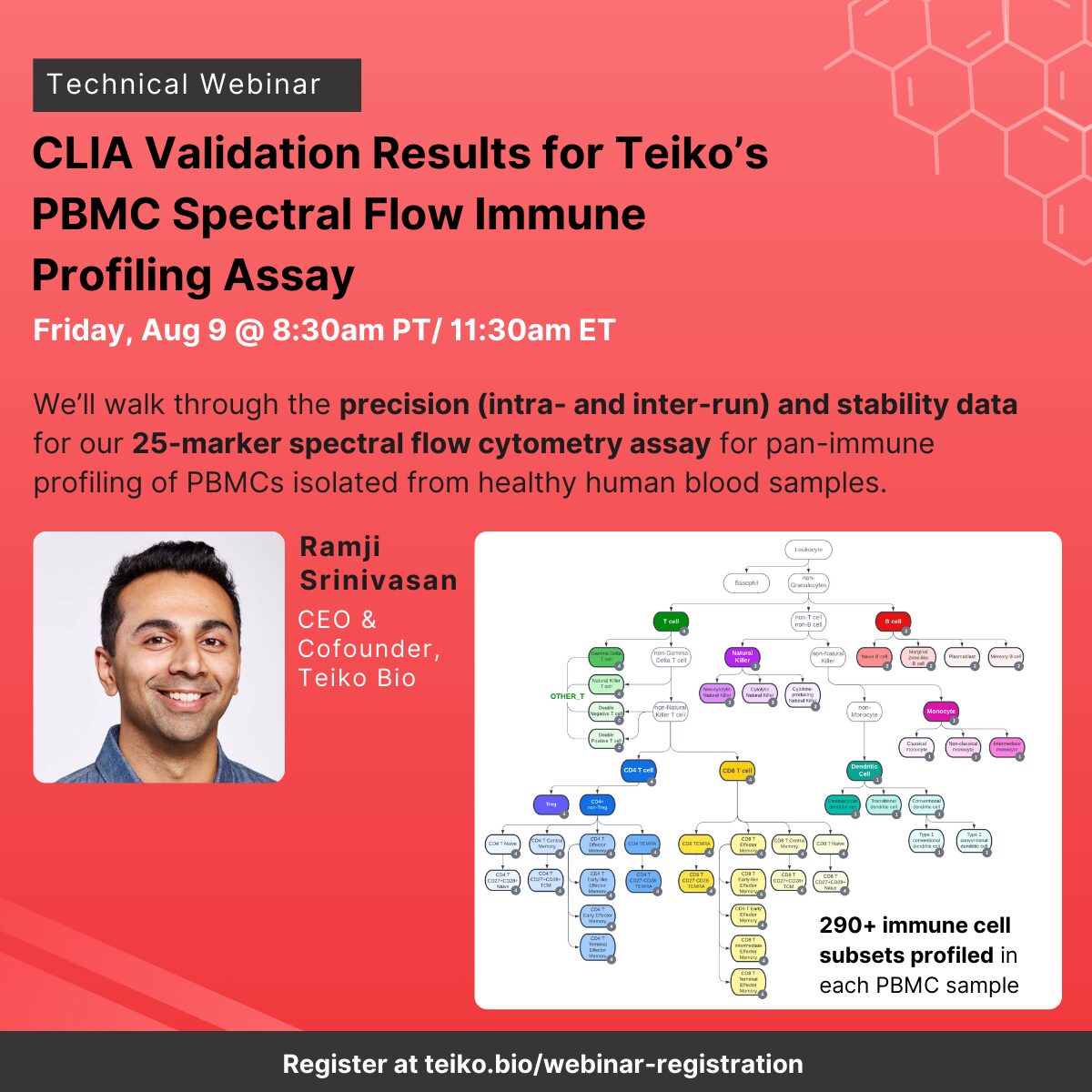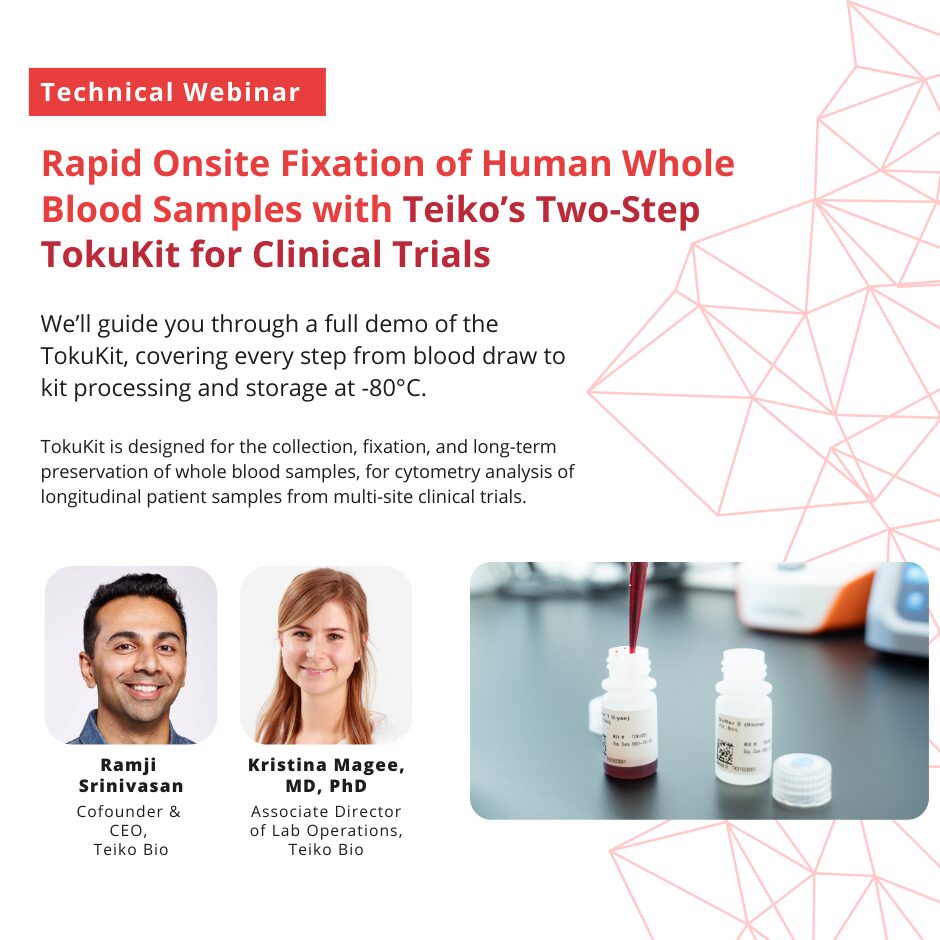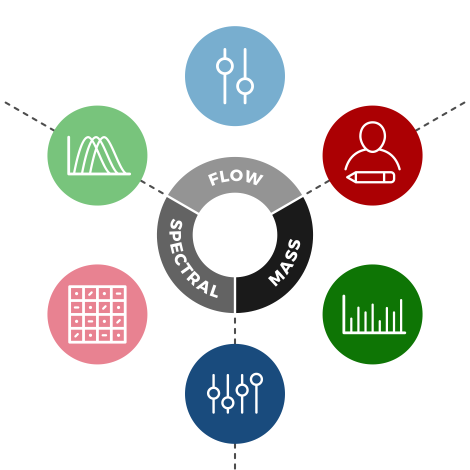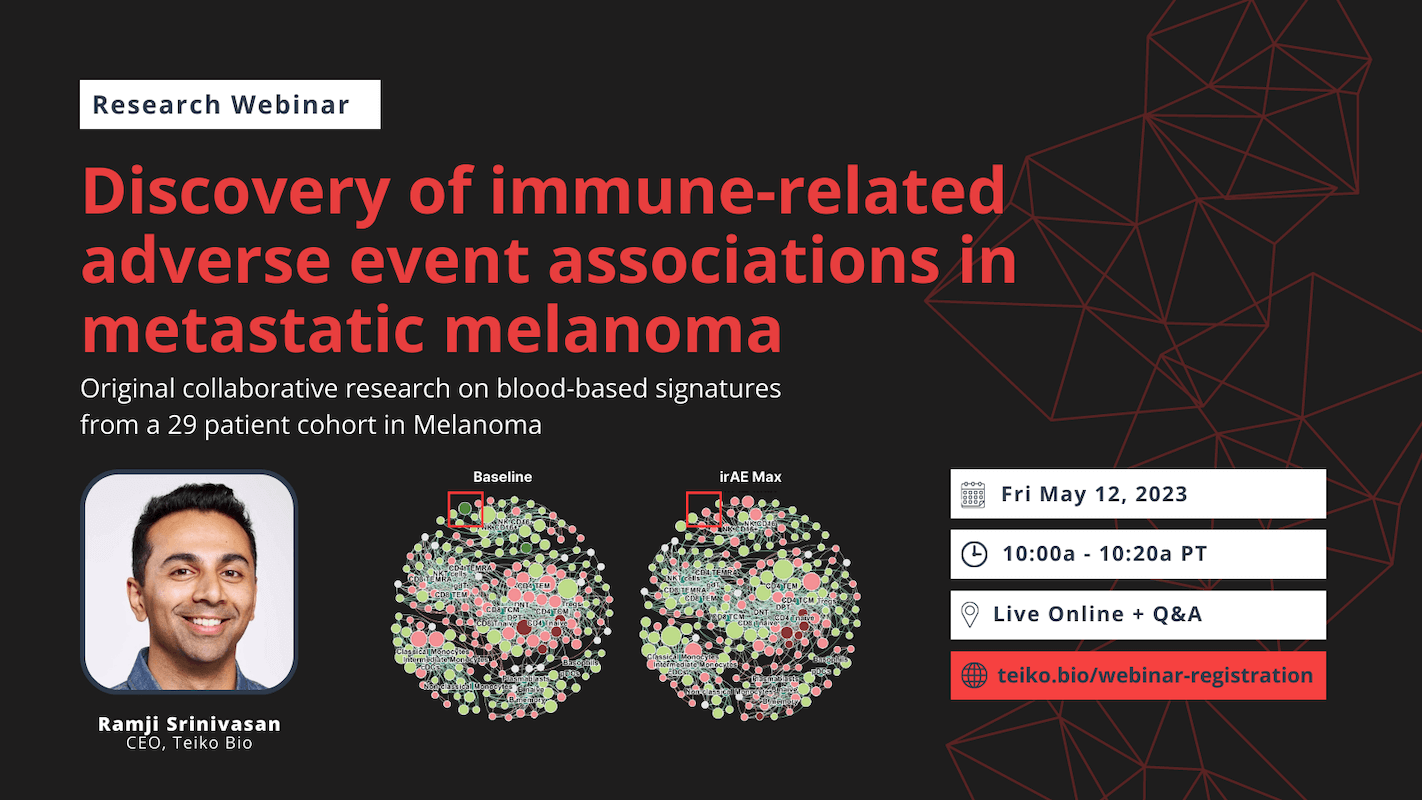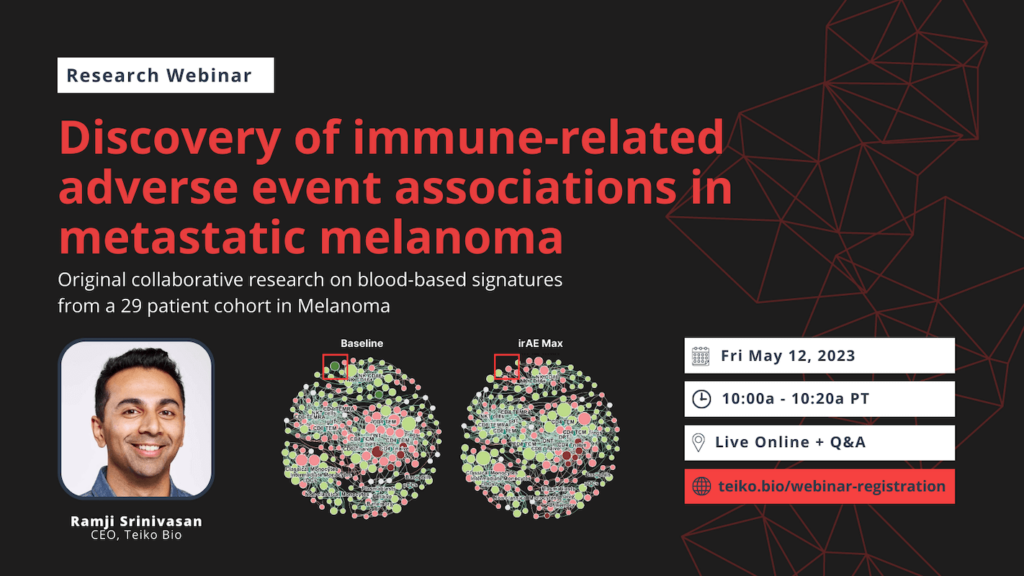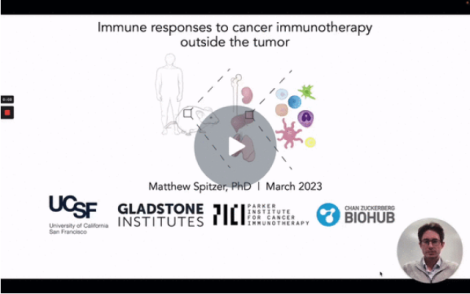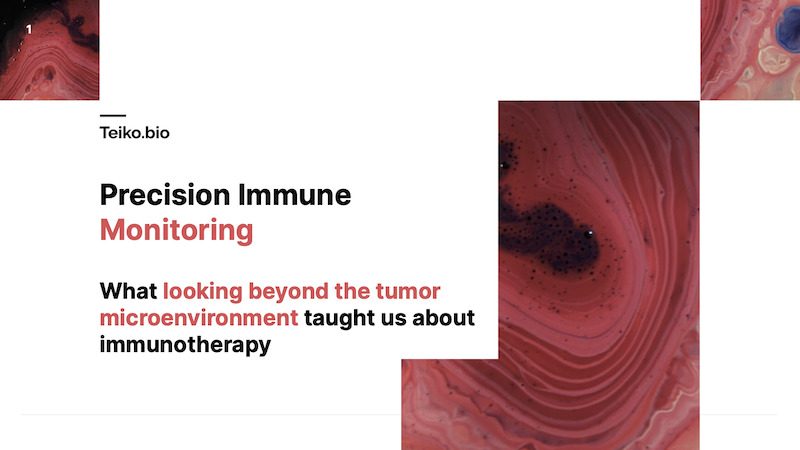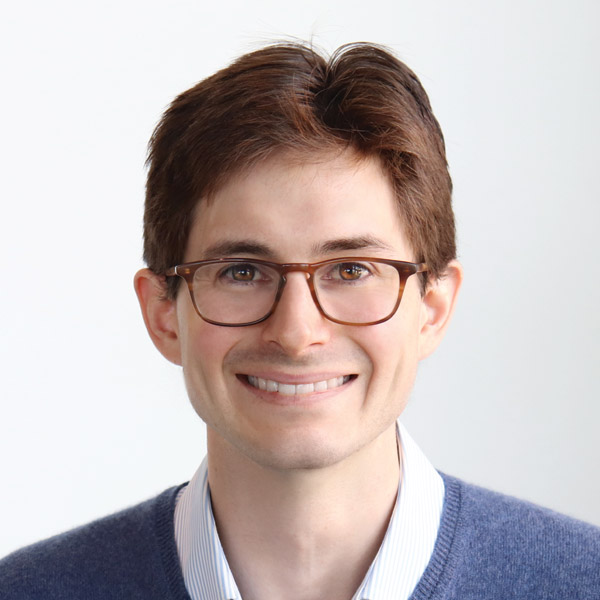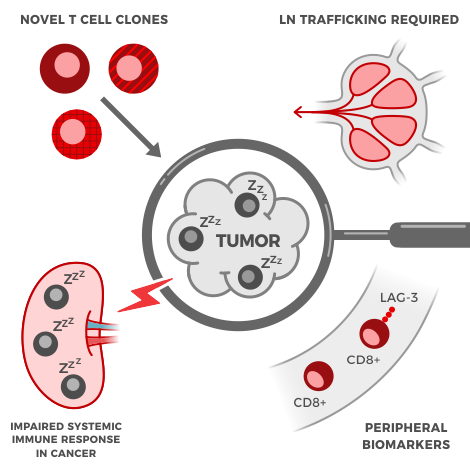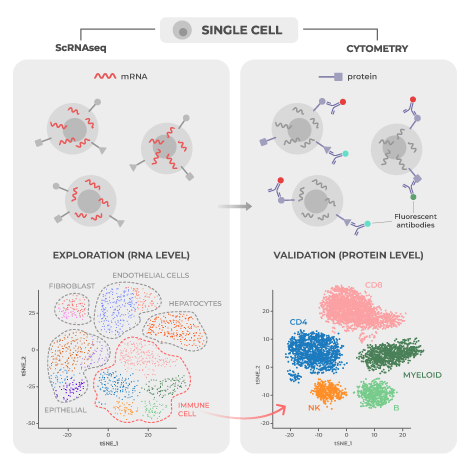About the Webinar
In this “essentials” series, Ramji Srinivasan, CEO and cofounder, explains the physical differences between spectral flow cytometry and conventional flow cytometry. Specifically he reviews how these instruments differ in their respective cpacity to measure immune parameters, and why an immunotherapy developer might care. He delves into why these technical differences are, particularly in terms of gaining deeper insights into complex immune cell populations, tracking subtle changes in cell activation states, and identifying biomarkers related to therapeutic response and adverse events.
About the Speaker
Before Teiko, Ramji was Cofounder, CEO and Chairman of Counsyl, a women’s health genetic screening laboratory. Counsyl screened over 1M prospective parents, mothers-to-be and women at risk of hereditary cancer. In 2018, Counsyl was acquired by Myriad Genetics, Inc for $375M in cash and stock.
Ramji earned a B.S. in computer science and an M.S. in financial mathematics, both from Stanford University. Ramji also attended Stanford’s Graduate School of Business before dropping out to start Counsyl.
